There are many choices when it comes to flooring for your house. Vinyl Vs laminate flooring: which one is the most popular option right now? Both are considerably popular. Both offer affordability, versatility, and a wide range of styles. They also have characteristic differences that can make one a better fit for your needs than the other. We’ll break down the pros and cons of vinyl and laminate flooring in this detailed guide, allowing you to make a smart selection for your next home renovation project.
Design and Material: Vinyl Vs Laminate Flooring
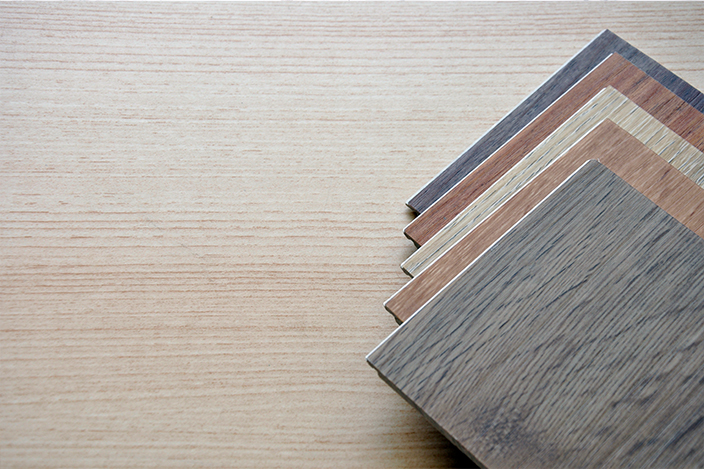
Vinyl Flooring:
Vinyl flooring is made primarily from artificial materials, including PVC (polyvinyl chloride), plasticizers, and sometimes fiberglass. This composition gives vinyl its signature flexibility and water-resistant properties. It is available in two main forms: sheet vinyl and luxury vinyl tiles/planks (LVT/LVP).
Laminate Flooring:
Laminate flooring, on the other hand, consists of several layers, including a core layer of high-density fiberboard (HDF), a decorative layer with a printed design, and a protective top layer. The design layer can look like the appearance of wood, stone, or various other materials.
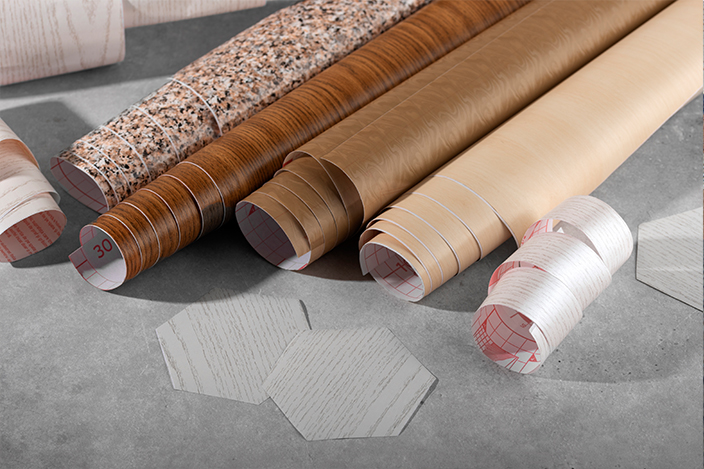

Laminate Flooring:
Laminate flooring, on the other hand, consists of several layers, including a core layer of high-density fiberboard (HDF), a decorative layer with a printed design, and a protective top layer. The design layer can look like the appearance of wood, stone, or various other materials.
Appearance and Style: Vinyl Vs Laminate Flooring
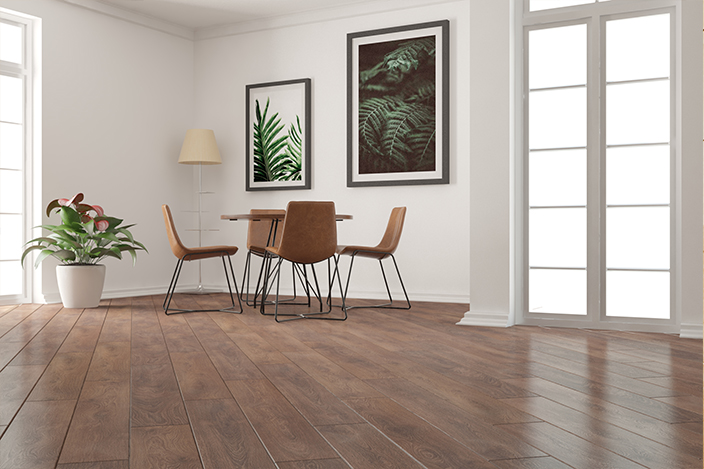
Vinyl Flooring:
Vinyl flooring has advanced greatly in creativity. It offers a vast range of styles, colors, and patterns, including realistic wood and stone looks. The top layer of vinyl is often embossed to add texture, providing an authentic feel underfoot. You can achieve the look of hardwood or natural stone without the high cost.
Laminate Flooring:
Laminate flooring is also known for its versatility in replicating the appearance of real wood or stone. The high-quality imaging technology used in laminate manufacturing allows for highly detailed and realistic designs. Laminate floors can replicate the texture and grain patterns found in hardwood and natural stone.
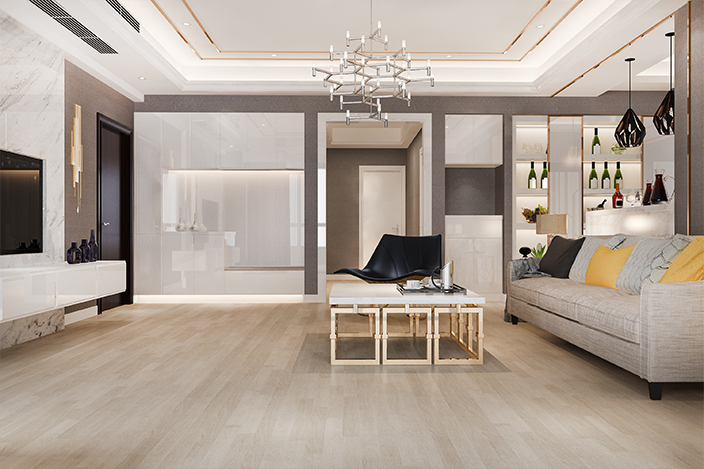

Laminate Flooring:
Laminate flooring is also known for its versatility in replicating the appearance of real wood or stone. The high-quality imaging technology used in laminate manufacturing allows for highly detailed and realistic designs. Laminate floors can replicate the texture and grain patterns found in hardwood and natural stone.
Durability and Longevity: Vinyl Vs Laminate Flooring
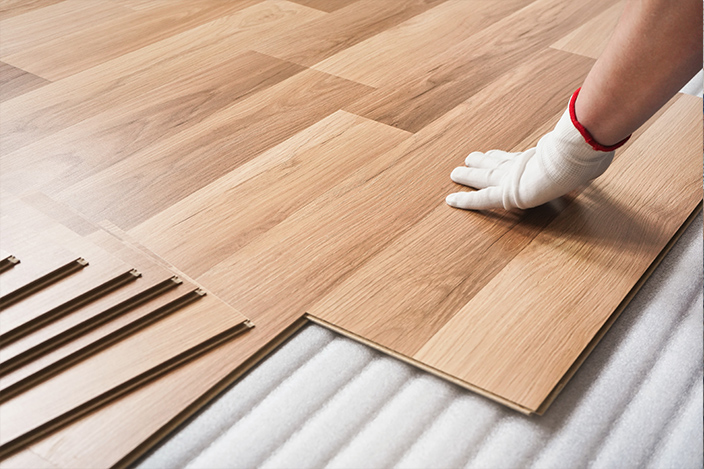
Vinyl Flooring:
Vinyl flooring is renowned for its enduring quality. Vinyl is resistant to moisture, stains, and scratches, making it an excellent choice for high-traffic areas and homes with children or pets. The proper care and maintenance of vinyl flooring can last for 15-25 years or more.
Laminate Flooring:
Laminate flooring is also durable but may be an easy target for moisture damage, specifically if exposed to standing water for extended times. At the same time, it resists scratches and dents. It can show wear and tear over time, and damaged laminate planks are challenging to repair. Laminate floors typically have a lifetime of 15-20 years.
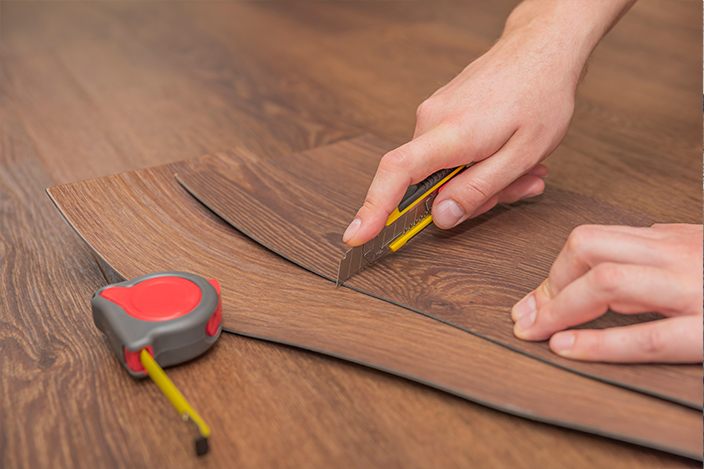

Laminate Flooring:
Laminate flooring is also durable but may be an easy target for moisture damage, specifically if exposed to standing water for extended times. At the same time, it resists scratches and dents. It can show wear and tear over time, and damaged laminate planks are challenging to repair. Laminate floors typically have a lifetime of 15-20 years.
Installation Process: Vinyl Vs Laminate Flooring
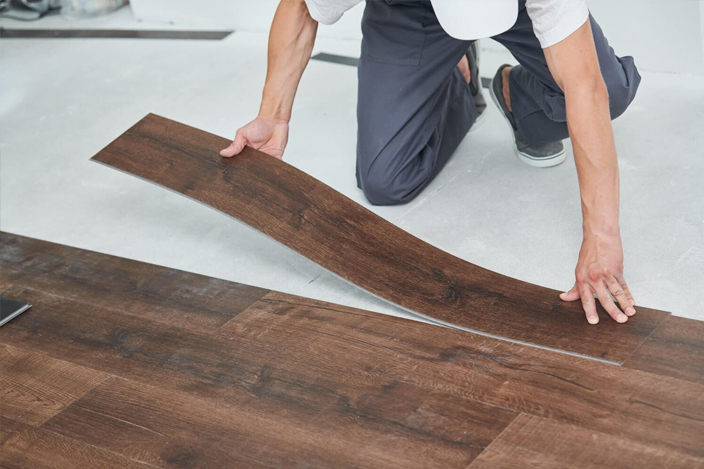
Vinyl Flooring:
One of the advantages of vinyl flooring is its ease of installation. It can be installed as an independent floor, which means it doesn’t need to be stuck or fixed down. However, for large or complex installations, professional installation is recommended.
Laminate Flooring:
Laminate flooring is also designed for relatively straightforward installation. Many laminate products feature a click-and-lock mechanism, allowing planks to fit together effortlessly. Making laminate flooring a popular choice but still professional installation can ensure a more accurate fit, especially in challenging areas.
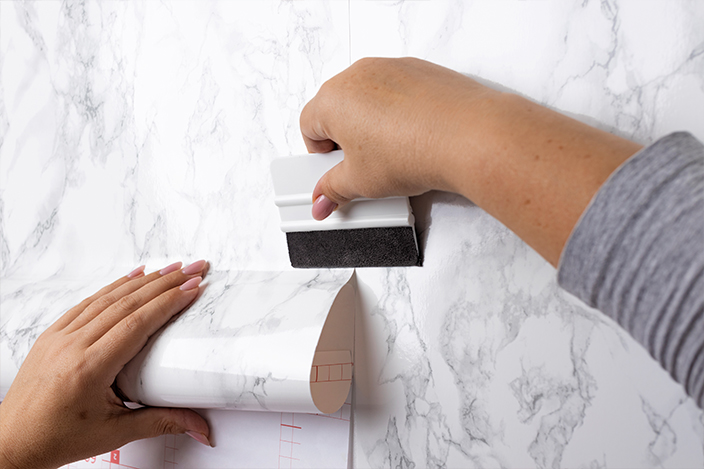

Laminate Flooring:
Laminate flooring is also designed for relatively straightforward installation. Many laminate products feature a click-and-lock mechanism, allowing planks to fit together effortlessly. Making laminate flooring a popular choice but still professional installation can ensure a more accurate fit, especially in challenging areas.
Maintenance and Cleaning: Vinyl Vs Laminate Flooring
Vinyl Flooring:
Absolutely, only a little maintenance is required for vinyl flooring. Cleaning or sweeping it regularly to get rid of dirt and dust, along with washing it every, is usually enough to keep it looking brand new. It’s also an excellent choice for households with allergy sufferers as it doesn’t trap allergens.
Laminate Flooring:
Laminate flooring is also easy to maintain. Regular cleaning with a dry mop or vacuum is essential to prevent scratching from grit and dirt. Unlike vinyl, laminate is less tolerant of standing water, so spills should be wiped up quickly. But it’s important to keep the core from getting too wet, as it can damage the HDF core.
Cost Comparison: Vinyl Vs Laminate Flooring
Vinyl Flooring:
Vinyl flooring is often the more budget-friendly option. The cost is different depending on factors like the quality, style, and installation method, but it manages to be more affordable than laminate, hardwood, or tile flooring.
Laminate Flooring:
Laminate flooring typically falls into a mid-range price category. Laminate flooring is as inexpensive as vinyl, and it’s still more budget-friendly than many other flooring options. Keep in mind that the overall cost has not only the materials but also installation, carpet pad, and any additional accessories.
Environmental Considerations: Vinyl Vs Laminate Flooring
Vinyl Flooring:
Vinyl flooring may contain possibly harmful chemicals. However, there are eco-friendly vinyl options available that focus on eco-friendly and low chemical pollution.
Pros:
- Water-resistant
- Highly durable
- Versatile styles and designs
- Budget-friendly
- Low maintenance
Cons:
- Environmental concerns with some products
- It might not make a house worth as much as hardwood
Laminate Flooring:
Laminate flooring is generally considered more environmentally friendly than vinyl because it uses fewer artificial materials. Many laminate products are certified for their low environmental impact and sustainable sourcing.
Pros:
- Realistic wood and stone appearance
- Durable
- Budget-friendly
- ease of installation
- Environmentally friendly options available
Cons:
- Expose to moisture damage
- Limited repair options for damaged planks
Conclusion
Choose between Vinyl Vs Laminate Flooring basically comes down to your specific requirements, desires, and budget. Both options offer distinct advantages and a wide range of style choices. If you are looking for water resistance, durability, and low maintenance, vinyl flooring may be the better choice. On the other hand, if you’re looking for a realistic wood or stone appearance and are willing to take protection against moisture, laminate flooring might be the way to go.
Consider your lifestyle, the room where the flooring will be installed, and your long-term plans for the space when making your decision. Whichever option you choose, be sure to implement proper installation and maintenance guidelines to ensure your new flooring looks great for years to come. By considering the pros and cons of Vinyl Vs Laminate flooring, you can make a confident decision that enhances the beauty and functionality of your home.
Advantages of Vinyl Flooring:
- Water Resistance:Vinyl flooring is highly durable to water and moisture, making it an ideal choice for areas likely to spills or humidity, such as kitchens, bathrooms, and basements.
- Versatility in Design:Vinyl offers a wide array of design options, including styles that mimic the appearance of hardwood, stone, ceramic tiles, and more. It allows homeowners to achieve their desired aesthetic without the associated cost.
- Low Maintenance:Vinyl is easy to maintain and clean. Regular sweeping or vacuuming, combined with occasional mopping using a manufacturer-approved cleaner, is usually sufficient to keep it looking great.
- Easy Installation:Many vinyl flooring options are designed for DIY installation, thanks to features like click-and-lock systems. Vinyl can save on installation costs.
- Allergy-Friendly:Vinyl doesn’t trap allergens like dust and pet dander, making it a suitable choice for households with allergy sufferers.
- Durability:Vinyl is known for its durability and ability to withstand heavy foot traffic. It is highly resistant to marks, dents, and stains, making it a suitable option for busy households.
- Affordability:Vinyl flooring is often more budget-friendly compared to hardwood, stone, or even laminate flooring, making it more affordable to a wide range of homeowners.
Advantages of Laminate Flooring:
- Realistic Appearance:Laminate flooring uses advanced imaging technology to replicate the look of natural materials like hardwood, stone, or tile. It offers a wide range of design selections that can be nearly indistinguishable from the real thing.
- Durability:Laminate flooring is known for its durability and resistance to wear and tear. It’s highly scratch and dent-resistant, making it suitable for high-traffic areas and households with pets.
- Affordability:Laminate flooring provides a cost-effective alternative to hardwood, stone, or ceramic tile flooring. It offers a luxurious appearance without the high price tag.
- Ease of Installation:Many laminate products feature a click-and-lock or tongue-and-groove installation system, making it a suitable option for admirers. Professional installation is also an option for accurate results.
- Low Maintenance:Easy to maintain and regular cleaning or sweeping to remove dirt and dust. Combined with occasional damp mopping, keeps it looking its best.
- Moisture Resistance:Laminate flooring has a protective top layer that provides some resistance to moisture and spills, making it suitable for kitchens and bathrooms when properly maintained.
- Wide Range of Styles:Laminate flooring offers a diverse collection of styles, colors, and textures, allowing homeowners to achieve their desired style.



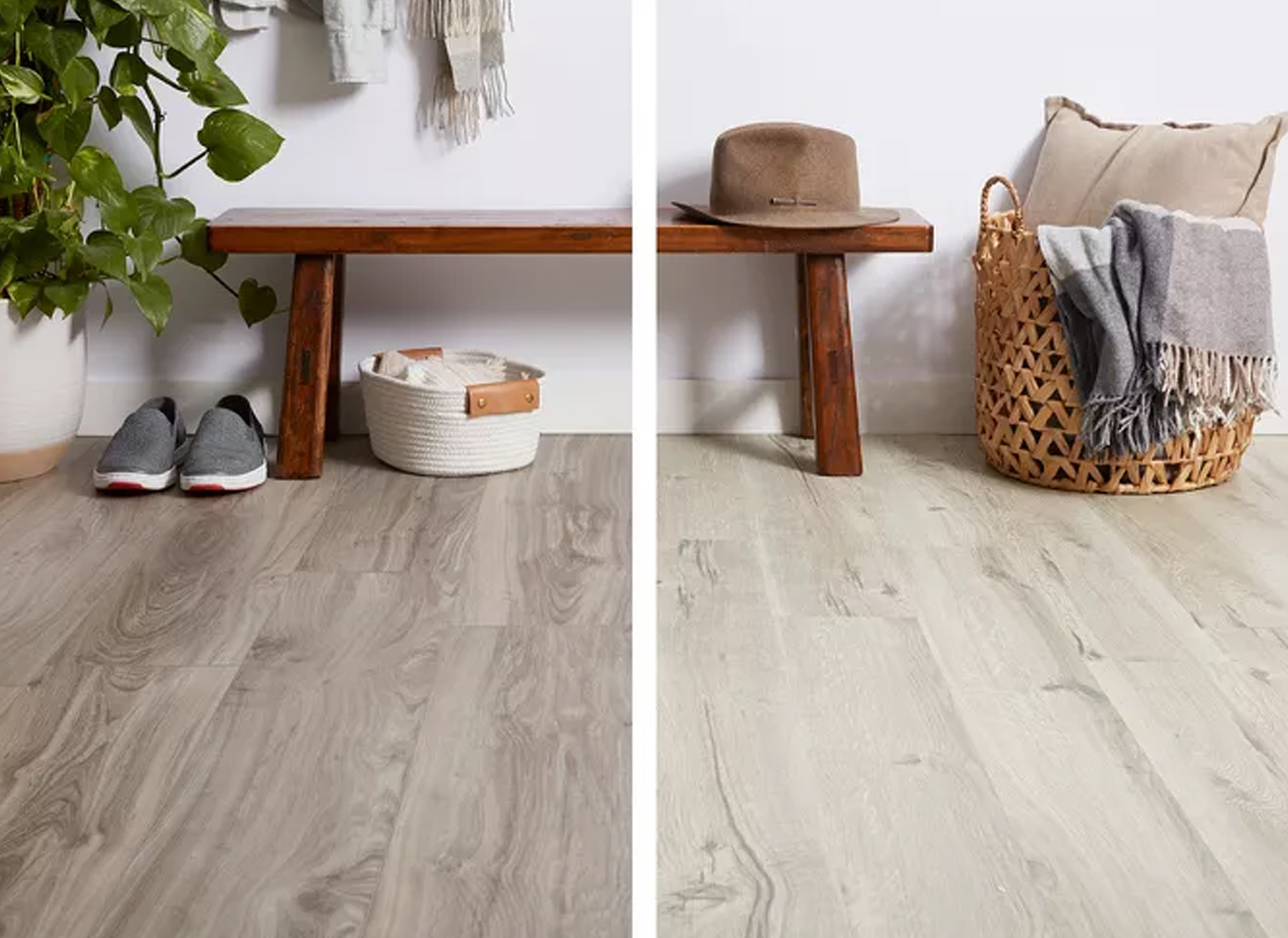
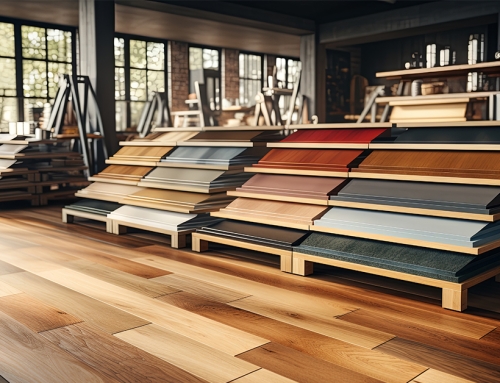
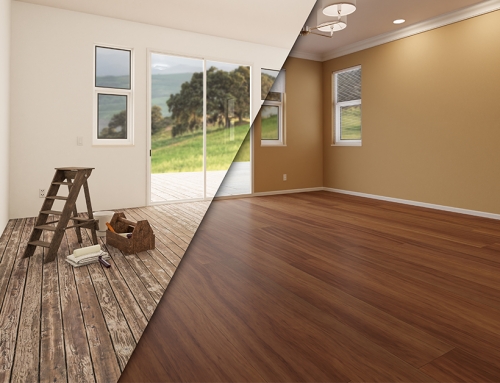
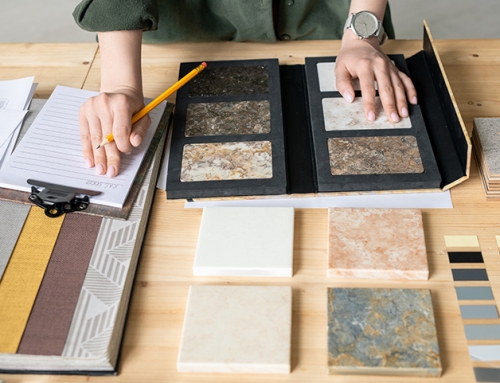

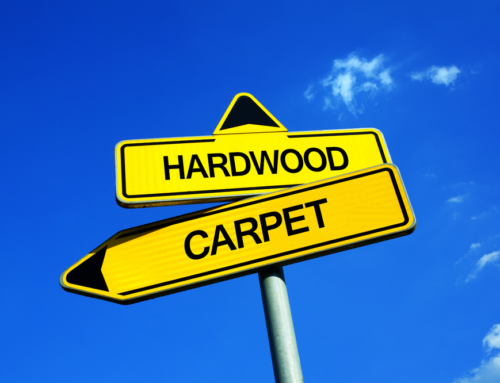
Leave A Comment